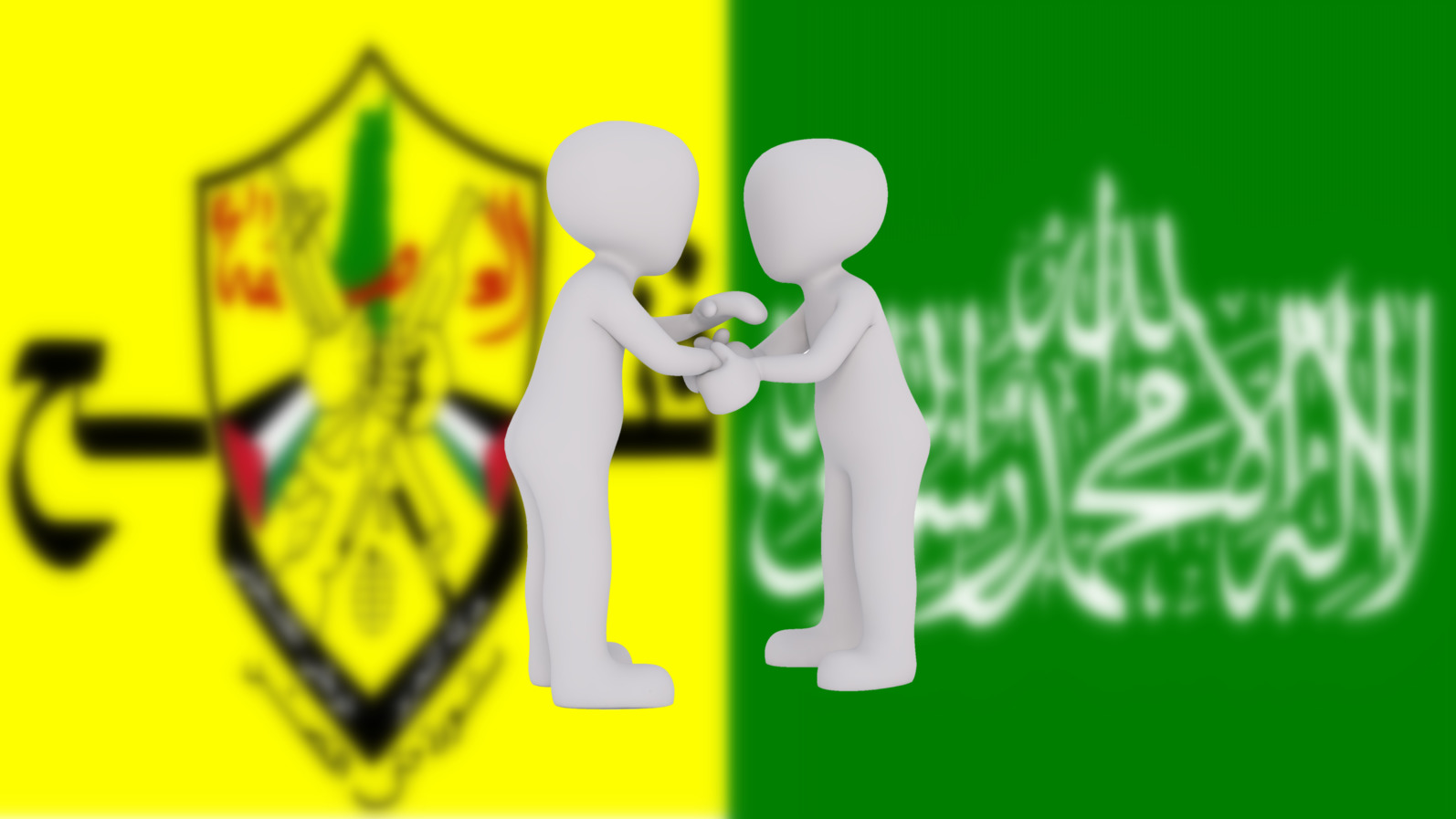Fatah-Hamas Talks Leave Out Smaller Palestinian Movements
Big parties face accusations of ‘bilateralism’ in reconciliation negotiations
The Fatah and Hamas movements have made tireless efforts over the past couple of weeks to achieve long-awaited reconciliation and end the division in the Palestinian arena, holding a series of meetings, first in Beirut and Ramallah and then in Istanbul.
The continual meetings between the two big parties have roused resentment in other Palestinian movements, which accuse it of neglecting them.
Coming to the [rest of the Palestinian] movements after completing their [bilateral] meetings is unacceptable and we will not accept being just witnesses for appearances’ sake
Jameel Mezher, a member of the political bureau of the Popular Front for the Liberation of Palestine, expressed in a radio interview his movement’s objection to “Hamas-Fatah bilateralism.”
“Coming to the [rest of the Palestinian] movements after completing their [bilateral] meetings is unacceptable and we will not accept being just witnesses for appearances’ sake. Both Hamas and Fatah have to apologize to our people for the many years of division,” he said.
Mezher stressed the importance of inclusive dialogue, saying that it is “the way to end division. … Hamas-Fatah bilateralism won’t end the tragic situation in which we are living. … If what happened in the first meeting is repeated in the next one, then the political system should prepare for another catastrophe equal to that of the division.”
We don’t conduct bilateral talks. Understandings between Hamas and Fatah are preliminary and will be presented and discussed with all Palestinian movements in the coming secretaries-general meeting. Preliminary understandings are not in any way an alternative to the inclusive dialogue
Hazem Qassem, a Gaza-based Hamas spokesperson, tried to allay such concerns.
“We don’t conduct bilateral talks. Understandings between Hamas and Fatah are preliminary and will be presented and discussed with all Palestinian movements in the coming secretaries-general meeting. Preliminary understandings are not in any way an alternative to the inclusive dialogue,” he told The Media Line.
Eyad Naser, Fatah spokesperson, agrees and considers previous meetings as preparation for inclusive dialogue.
“We want to reassure the Palestinian movements: [The ongoing] bilateral talks will be presented to the secretaries-general who represent the entire Palestinian entity,” Naser told The Media Line.
“The state of division was bilateral [between Hamas and Fatah movements]; that’s why I believe reaching positive results with those two parties will eventually lead to an inclusive Palestinian dialogue where a fair political partnership is achieved,” he said.
In a signal of optimism, Hussein al-Sheikh, a member of the Fatah Central Committee, commented on the most recent meeting with Fatah that took place in Istanbul in late September, tweeting that it “was fruitful and constructive, and is considered a significant step on the way to achieving reconciliation, partnership and Palestinian unity.”
I stopped trusting them a long time ago. Each [Hamas and Fatah] looks out for its own interests regardless of the people’s suffering. They met thousands of times before and they failed to reconcile. Why should I believe they will do it this time?
Despite the unprecedented optimism expressed by both Hamas and Fatah on the chances of achieving genuine reconciliation, regaining the trust of the Palestinians and of the Gazan street in particular might seem impossible, given the long history of failures.
Tamer Abumsameh, a young nurse who also works as a taxi driver, told The Media Line, “I stopped trusting them a long time ago. Each [Hamas and Fatah] looks out for its own interests regardless of the people’s suffering. They met thousands of times before and they failed to reconcile. Why should I believe they will do it this time?”
Qassem told The Media Line, “It’s understandable that people have doubts, especially since previous attempts to end division have been unsuccessful. But this time is different for several reasons.
“After reaching a diplomatic deadlock due to [US President Donald] Trump’s vision known as ‘the deal of the century,’ the wave of normalization [of relations with Israel], the weakness of the Arab League and [Israel’s] annexation plans, the PA’s policy of halting coordination [with Israel] and suspending all agreements created a better atmosphere for Palestinian dialogue,” Qassem explained.
“Moreover,” he elaborated, “this time, the challenges are existential for all Palestinian parties, which understand the grave dangers threatening the Palestinian cause, both by the American administration that fully supports the Zionist right and by the Arab division demonstrated by the rush to enter into normalization relationships with the occupation [Israel].”
Current circumstances favor Palestinian reconciliation. The pandemic, the Israeli and American plans, and the Arab betrayals are all reasons to move forward on the only way of ending division and holding fair elections
Abu Mohammed, 60, seems optimistic. He told The Media Line: “Finally, current circumstances favor Palestinian reconciliation. The pandemic, the Israeli and American plans, and the Arab betrayals are all reasons to move forward on the only way of ending division and holding fair elections.”
The issue of Palestinian elections has long been one of the most bitterly disputed topics, having blocked the reconciliation process several times in the past. However, there are indications of progress, according to analysts.
Wajjeeh Abu Zarifa, a Gaza-based commentator and analyst, told The Media Line that “the Palestinian road map [forward] has been well-defined and its requirements are clear and specific, to form reconciliation committees, form [a united] public resistance leadership and reform the Palestinian Authority.
“As a result, the coming dialogues, whether bilateral or inclusive, will aim to achieve Palestinian reconciliation in its comprehensive meaning: reforming the Palestinian political system on an agreed basis and redeveloping PA institutions to ensure full Palestinian participation. …
“Elections are an integral component of that process. … The path to elections is inevitable as it’s the only path available, yet we might witness some setbacks and complications at any stage of the process,” Abu Zarifa said.


